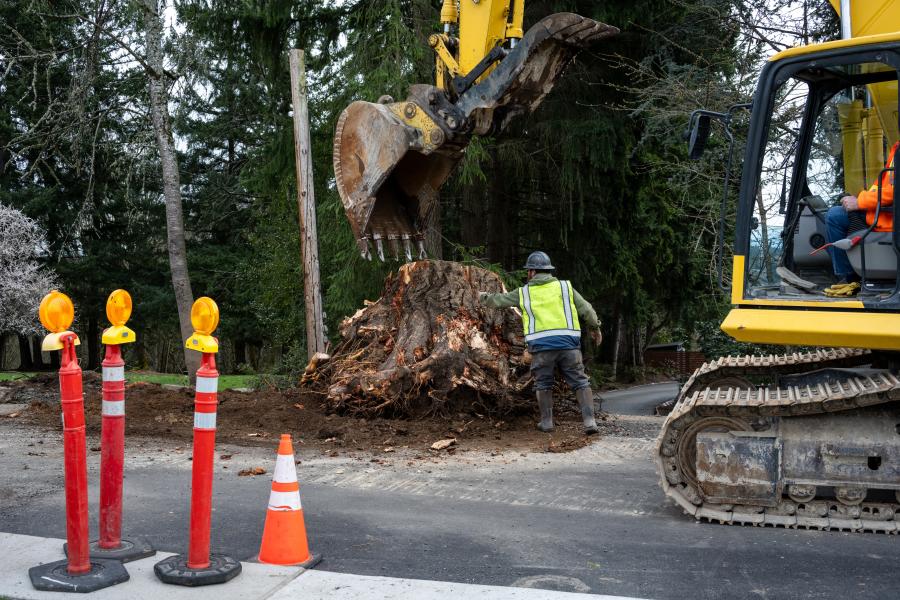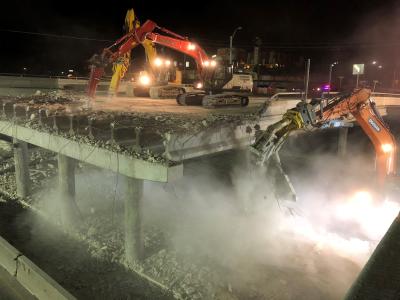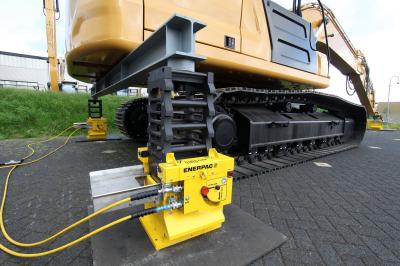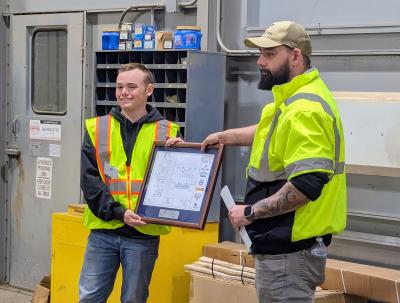Adobe Stock photo
As more younger workers enter the construction trades, the average age of craft trades men and women has come down.
The face of the skilled craft trade industry is getting younger. Literally.
More younger people than ever before are entering the construction industry and driving down the average age of tradesmen and women. As more construction workers retire, the industry's labor needs are growing exponentially. But Gen Z workers drawn to the specialty trades may fill those venerable shoes.
Vocational training and apprenticeship programs in the skilled craft trades are filling up with younger people launching their careers in construction. The high cost of a four-year degree has something to do with it. But for many Gen Z workers, the job resiliency offered by the industry is appealing.
As a result, enrollment in vocational programs rose 16 percent in 2023, reported the National Student Clearinghouse. And the median age of workers in many specialty trades, including carpentry and HVAC maintenance, fell from the mid-40s to the high 30s.
That makes Robb Sommerfeld smile. Co-founder of the National Center for Craftsmanship, he likes that more students are attracted to this career field.
"We're finally seeing a more than subtle change within our society," said Sommerfeld, whose organization provides vocational training at high schools.
Rewriting False Narratives
For many years, young people have been "nudged" away from construction careers for various reasons, starting with parental guidance. Seeking to understand the stigmas, Sam Pillar had the company Jobber survey Gen Z workers about their impression of a career in construction.
He said many people think less of blue collar work. "This misguided stigma is ridiculous and puts the future of our homes and our economy at risk," he said.
After surveying 1,000 people aged 18 to 20 for its Blue-Collar Report, Jobber found that parents play a large role in perpetuating this stigma. These parents "are heavily influencing their children to attend a traditional four-year college," Pillar said.

Adobe Stock photo
The good news is that there are signs that what high-school graduates envision for their careers differs from the ideals of their parents.
In fact, 75 percent of Jobber survey respondents said they are interested in exploring vocational schools that offer paid, on-the-job training.
There's a lack of understanding among young people about the earning potential of certain trades. The survey majority didn't know that tree maintenance, landscaping, residential cleaning and plumbing businesses can earn over $1 million per year.
Interestingly, nearly two-thirds of respondents want to start a business at some point, and 11 percent already have.
"Whether they realize it, home service businesses provide the entrepreneurial opportunities that Gen Z is looking for," said Pillar.
He also found that Gen Z is aware of AI's potential to automate a range of jobs. Job security was identified as the most important factor for selecting a career.
"It seems that concerns about taking on and managing student debt are impacting their career decisions," said Pillar. "When looking at AI, 56 percent of respondents believe that ‘blue-collar' jobs have more job security than ‘white-collar' desk jobs."
For years the construction industry has tried any number of plays to tackle a critical labor void. The tide may be turning. Four-year colleges were the attraction in the early 2000s when the recession forced Millennials to wait out the job market and take on the burden of student debt.
But with the current hot jobs market, many younger workers are calculating the odds in favor of stronger career fields. Construction is at the top of the list. In fact, a New American survey found that 54 percent of Gen Z-ers believe a high-school diploma is sufficient to gain a well-paying stable job, reported Axios.
And 46 percent of parents said they'd prefer their kids to pursue alternatives to four-year college, found a Gallup study.
Construction trade careers are seen as more resilient to the rise of AI than white collar alternatives, said Axios.
Nick Largura of Superior Construction told the news service that the pool of 18- to 25-year-old workers is growing.
"That is the pivotal moment when people are really trying to figure out what they want to do," he said. "And if you can show them a promising future in that time, you can really make a difference."
Largura makes two points: Construction, like many other trades, is an industry that isn't going anywhere despite fears that AI will wipe out jobs across sectors.
Also, "you get to see a physical product at the end of the day as a result of your work" in the construction field.
Sommerfeld of the National Center for Craftsmanship believes with so many people retiring, it's hard to say if the Gen Z trend will continue growing.
"It's still a matter of educating our country that, ‘Hey, these jobs are out there,'" he said.
Largura would agree: "I by no means think the work is done, but the momentum is there."
Samantha DeAlmeida of the ABC of New Jersey also is a firm believer that Gen Z is playing a big part in the future of the construction industry.
In an article for roi-nj.com, she said the picture for filling the 441,000 job openings tracked by the BLS this spring is a bright one.
"The construction industry is one of the biggest, fastest-growing industries in the country," said DeAlmeida. "And it's continuing to see an unprecedented demand for skilled employees."

Adobe Stock photo
A recent article in the Wall Street Journal reported that the number of carpenters grew over the past decade, and their median age fell from 42.2 to 40.9.
Likewise for electricians. The ranks of that specialty trade grew by 229,000 workers, while the median age fell by 2.9 years.
The data also shows other skilled trade careers, including plumbing and HVAC occupations, are also trending younger, said DeAlmeida.
"Here in New Jersey, enrollment in vocational-technical schools has grown by about 23 percent over the past two decades," she said.
And nationally, the ranks of students studying construction trades also rose 23 percent, according to the Wall Street Journal.
She believes skilled trade jobs are a better fit for those who enjoy working with their hands, are entrepreneurial and don't want the four-year wait to start.
Even better, the demand for trade work continues to grow at unprecedented levels.
"Right now, there is a strong demand for high-paying jobs in infrastructure projects, the construction industry and real estate," said DeAlmeida.
Riding Wave of Interest
To capitalize on that demand, the ABC of New Jersey launched its Apprenticeship Training Program three years ago.
"We saw the critical need to educate more skilled trade workers that was not being met in New Jersey," said DeAlmeida.
ABC-NJ's apprenticeship program provides paid, on-the-job training and classroom-based theoretical education in 15 skilled craft trades, she said.
Working with local schools and businesses, the association provides pre-apprenticeship construction readiness training, or CORE.
The NJ ABC also can help prospective apprentices get hired with one of more than 1,300 member companies.
And upon successful completion, craft workers are eligible to be recognized at the journey level in their trade and receive a certificate of completion.
"Trade work provides high salaries, fulfilling careers and the opportunity to run one's own business," said DeAlmeida. "We need to have more conversations with our high-school students to show them the different ways to enter this promising field of trade work."

Adobe Stock photo
The ABC of New Jersey isn't the only organization trying to attract the Gen-Z worker to the construction industry. On a national level, NCCER also is at work.
The National Center for Construction Education and Research was named a 2023 DeWalt trades grant recipient for career and technical education (CTE) efforts.
Recognized for its High School Builder Program, NCCER was presented with a DeWalt Grow the Trades grant.
The grant program aims to help close the skilled labor gap by supporting nonprofit organizations that are skilling, reskilling and upskilling tradespeople.
According to DeWalt the program awards funding and tool donations annually as part of a larger $30 million commitment over five years.
NCCER was one of 70 organizations projected to skill and reskill more than 55,000 people in 2024.
"CTE programs provide a pathway for students to learn skills that will make them immediately employable," said Melissa Perkins, NCCER director of philanthropy and partnerships.
NCCER's High School Builder Program brings CTE education to new communities where there are exponential growth opportunities, she said.
With generous partners like DeWalt, "we will help close the skilled labor gap and change lives…through high-paying and in-demand careers."
The High School Builder Program is growing the national talent pipeline and making a local impact, according to the tool manufacturer.
With an estimated 20 students per school and annual growth, this initiative is expected to add 10,000 students into the talent pipeline in its first year alone.
"DeWalt is immensely proud to support NCCER," said Frank Mannarino, president, Power Tools Group, Stanley Black & Decker. "Funding educational programs and non-profits like NCCER connects more people to training, resources and opportunities that will lead to successful careers in the trades." CEG
Today's top stories






















